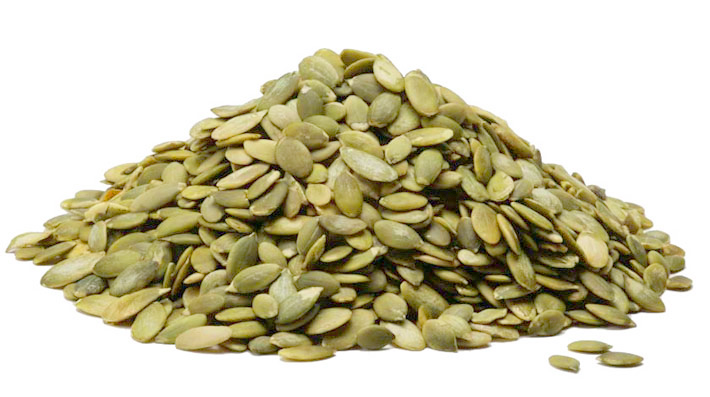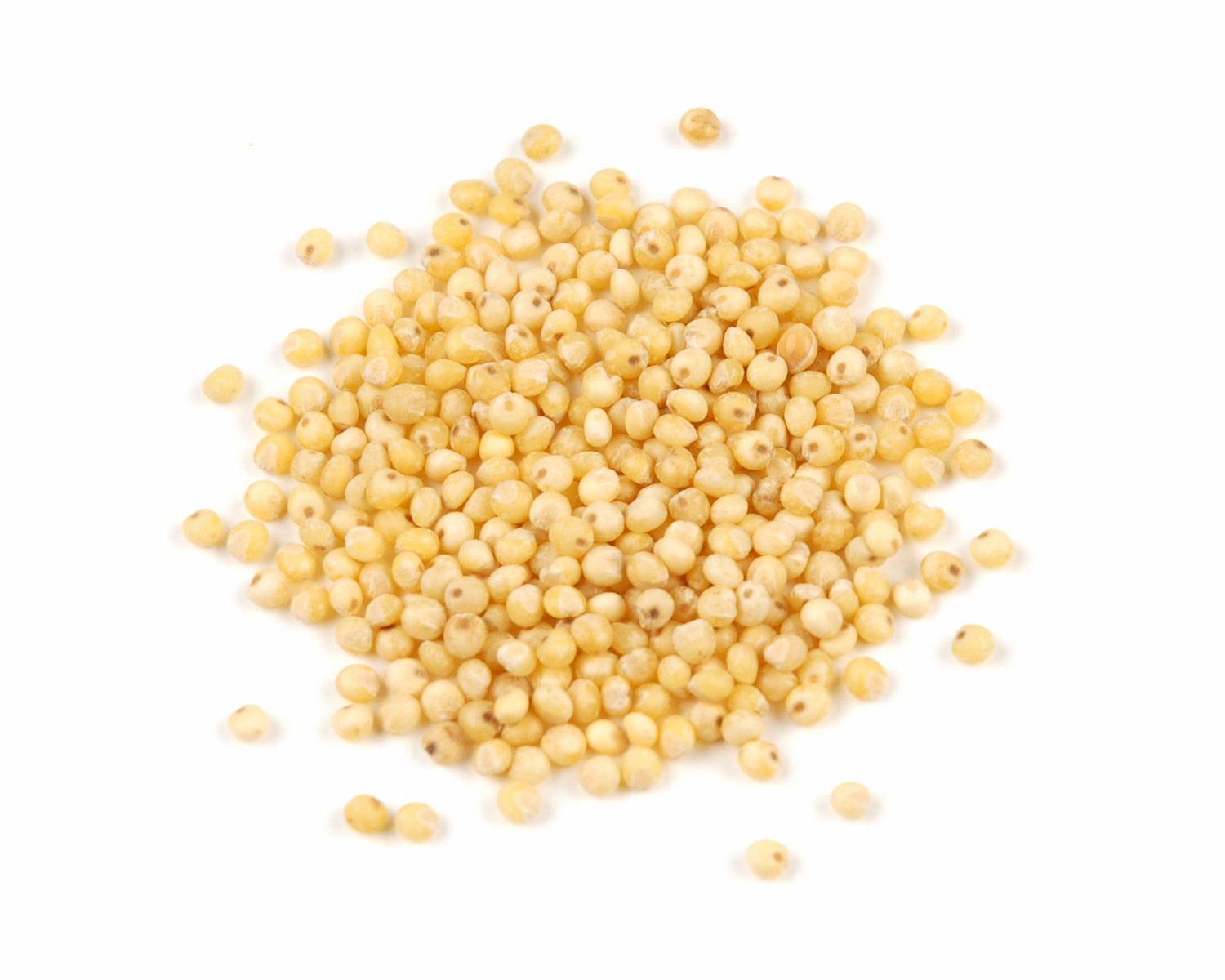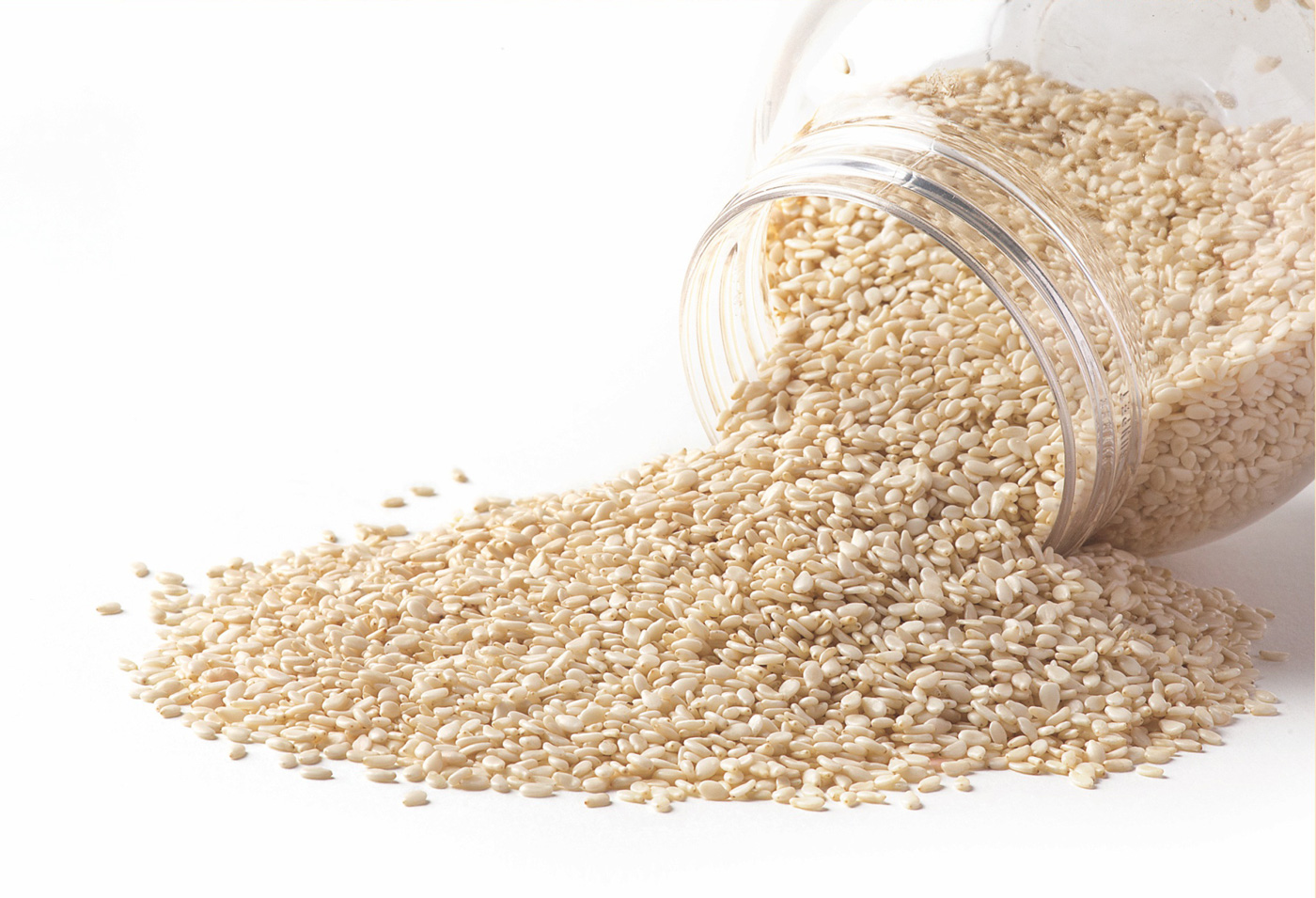SEEDS
Nutritional and health properties of seeds are the reason we to include them in NICS composition. The seeds contain a very wide variety of vitamins and microelements, as well as valuable unsaturated fatty acids. The seeds are rich in omega-3 fatty acids and fiber, they satiate for longer time and eliminate toxins from our body. The fiber in them also help for maintaining the processes in our organism.
 Origin: Kazakhstan
Origin: Kazakhstan

Legends claim that Hippocrates himself "prescribed" flaxseed to treat his patients. And today these seeds are among the most recommended by doctors and nutritionists for their general supportive and anti-inflammatory properties.
Flaxseed is a major source of fibres, which act favorably to digestion and urinary system and create a feeling of satiety.
Flax seeds contain about 30% protein, 15% carbohydrates, they are rich in vitamin E and vitamin A. It also contains about 10% mucilage. The best source of omega-3 fatty acids that help to reduce cholesterol levels in the body. It contains also omega-6 fatty acids, vitamins A, E, C, B1, B2, B3, B5, B6, B9, calcium, magnesium, phosphorus, potassium, zinc, iron.
Flax has lignans, which are known as plant estrogen and have antioxidant properties. Flaxseed helps regulate blood sugar levels due to the fibres therein.
Nutritional value:
| Nutrition facts | for 100 g. |
| Energy | 534 Kcal |
| 2234 kJ | |
| Fats, | 42 g |
| of which saturates | 4 g |
| Carbohydrate, | 29 g |
| of which sugars | 2 g |
| Protein | 17 g |
| Fibres | 27g |
| Sodium | 0.03 g |
Flax seeds is contained in the following types of NICS:
 Origin: Bulgaria
Origin: Bulgaria
 Sweet, delicious and crunchy, sunflower seeds are an excellent source of many essential amino acids that provide a natural exchange of body fat. They contain also many unsaturated fatty acids such as linoleic, palmitic, oleic, stearic, arachidonic and other. They are rich in minerals such as phosphorus, potassium, and magnesium, selenium, zinc, sodium, silicon, chromium, copper, cobalt, iron. In combination with high content of vitamins B1, B2, B3, E, they become very good for health.
Sweet, delicious and crunchy, sunflower seeds are an excellent source of many essential amino acids that provide a natural exchange of body fat. They contain also many unsaturated fatty acids such as linoleic, palmitic, oleic, stearic, arachidonic and other. They are rich in minerals such as phosphorus, potassium, and magnesium, selenium, zinc, sodium, silicon, chromium, copper, cobalt, iron. In combination with high content of vitamins B1, B2, B3, E, they become very good for health.
Sunflower seeds are full of vitamins C and E, which are natural antioxidants. Like other nuts, they are also a very good source of protein. Contained therein magnesium calms nerves, muscles and blood vessels, and the presence of selenium enhances detoxification and protects against cancer.
Nutritional value:
| Nutrition facts | for 100 g. |
| Energy | 584 Kcal |
| 2443 kJ | |
| Fats, | 51 g |
| of which saturates | 4 g |
| Carbohydrate, | 20 g |
| of which sugars | 3 g |
| Protein | 21 g |
| Fibres | 9 g |
| Sodium | 0.009 g |
Sunflower seeds are contained in the following types of NICS:
 Origin: China
Origin: China
 Pumpkin seeds are widely used in culinary, due to the high content and variety of nutrients they contain.
Pumpkin seeds are widely used in culinary, due to the high content and variety of nutrients they contain.
Pumpkin seeds have the largest amount of iron and magnesium among all seeds. They are rich in vitamins A, C, K, E and group B vitamins - B1, B2, B5, B6, B9. All are powerful antioxidants and help fight cell aging.
From the minerals they have also phosphorus, potassium, calcium, zinc, copper, manganese, selenium.
Pumpkin seeds contain essential omega-3 and omega-6 fatty acids, and the cocktail of nutrients and minerals is supplemented by a very rare ingredient delta-7 styrene and amino acid L-tryptophan, which helps to sleep better and avoid depression.
They are one of the best sources of protein and fiber.
Nutritional value:
| Nutrition facts | for 100 g. |
| Energy | 541 Kcal |
| 2264 kJ | |
| Fats, | 46 g |
| of which saturates | 9 g |
| Carbohydrate, | 18 g |
| of which sugars | 1 g |
| Protein | 25 g |
| Fibres | 4 g |
| Sodium | 0.018 g |
Pumpkin seeds are contained in the following types of NICS:
 Origin: Bolivia
Origin: Bolivia

The word "chia" in the language of the tribe Maya means "strength." The seeds were used by these ancient cultures like mega-energy food. Today it is defined as a super food because of the high nutritional value it has.
Chia contains 2 times more protein than other crops, 5 times more calcium than in animal milk, plus the quantity of boron that helps to convert calcium into bone structure. Chia has 2 times more potassium than bananas, 3 times more antioxidants than blackcurrant 3 times more iron than in spinach and large quantities of vitamins A, D, E, K ,magnesium, sodium, phosphorus, manganese, zinc. It is extremely rich in omega-3 and omega-6.
Chia slows down the conversion of carbohydrates into sugar stabilizing metabolic changes and thus creating more lasting effect on the supply of energy for the body.
Chia seeds are an ideal source of protein, providing our body essential amino acids in an easily absorbable form.
They are also a great source of soluble fiber.
Nutritional value:
| Nutrition facts | for 100 g. |
| Energy | 490 Kcal |
| 2050 kJ | |
| Fats, | 31 g |
| of which saturates | 3 g |
| Carbohydrate, | 44 g |
| of which sugars | 0 g |
| Protein | 16 g |
| Fibres | 38 g |
| Sodium | 0 g |
Chia is contained in the following types of NICS:
 Origin: Bulgaria, Ukraine
Origin: Bulgaria, Ukraine

Millet popcorns are produced by us. The millet in the composition of NICS is a certified bio. It is popped fat free, under high pressure.
Millet is a typical cereal food, but because of its high added value ranks among the favorites of nutritionists.
Millet does not contain gluten and is very rich in vitamins A, E, B1, B2, PP. It contains qualitative, slowly degradable carbohydrates and high protein content. Of the minerals best represented in its composition are silicon, potassium, magnesium, manganese, iron, copper, nickel, zinc, iodine and phosphorus.
Little grains are a champion in silicon content among all cereals. The micronutrient is very important for mineral metabolism and immunity.
In millet there is a high content of digestible protein, fibres, biocatalysts, starch, glucose, rapidly oxidizable fats. It is easily digestible without irritating the stomach.
Nutritional value:
| Nutrition facts | for 100 g. |
| Energy | 354 Kcal |
| 1481 kJ | |
| Fats, | 3 g |
| of which saturates | 1 g |
| Carbohydrate, | 80 g |
| of which sugars | 1 g |
| Protein | 13 g |
| Fibres | 3 g |
| Sodium | 0.005 g |
Millet is contained in the following NICS varieties:
 Origin: India
Origin: India

Sesame is one of the most valuable plants in the East. People have known its priceless qualities since time immemorial.
Sesame seed is an excellent source of calcium that the body completely absorbs. There is 88mg. of calcium in one tablespoon of sesame seeds. It also contains copper, manganese, magnesium, iron, phosphorus, zinc, tryptophan, vitamin B1, B2, B3, B9, A, E, folic acid and dietary fiber. In the composition of sesame proteins are found eighteen amino acids of which all the eight essential.
Sesame is an extremely valuable source of especially important vitamin B9 - folic acid, one of the vitamins healthiest for humans, which helps the development of the spinal cord and DNA synthesis.
In addition to these valuable minerals and vitamins, sesame contains two unique components - sesamin and sesamolin which belong to the group of the so called lignans. They have following effects: cholesterol-lowering and increasing stocks of vitamin E. Sesamin protects the liver from the adverse effects of oxygen.
Sesame seeds are rich in omega-6 and omega-9 fatty acids as well as essential amino acids, due to which body absorbs its proteins with extreme ease.
Nutritional value:
| Nutrition facts | for 100 g. |
| Energy | 631 Kcal |
| 2640 kJ | |
| Fats, | 61 g |
| of which saturates | 9 g |
| Carbohydrate, | 12 g |
| of which sugars | 0 g |
| Protein | 20 g |
| Fibres | 12 g |
| Sodium | 0.047 g |
Sesame is contained in following NICS varieties:















